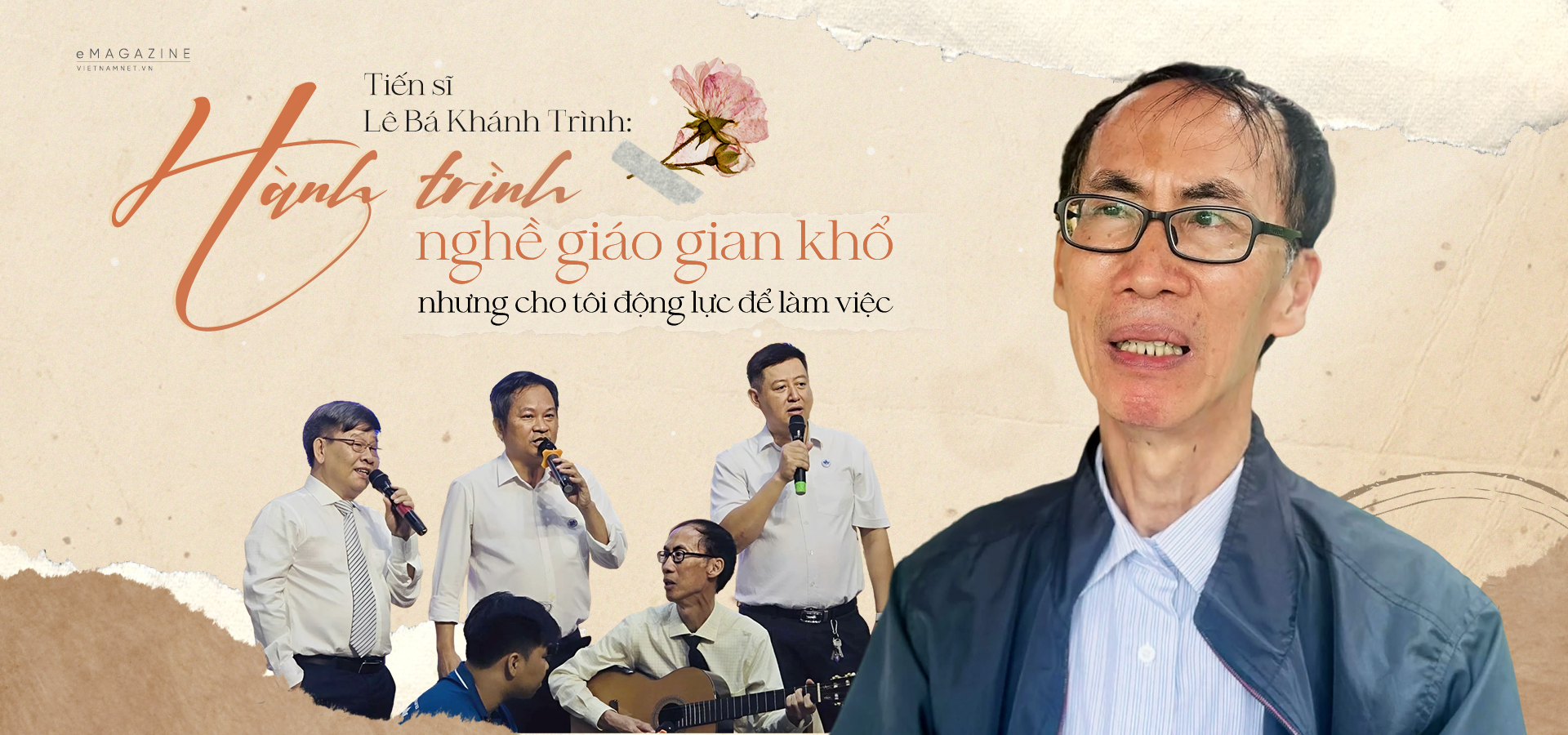
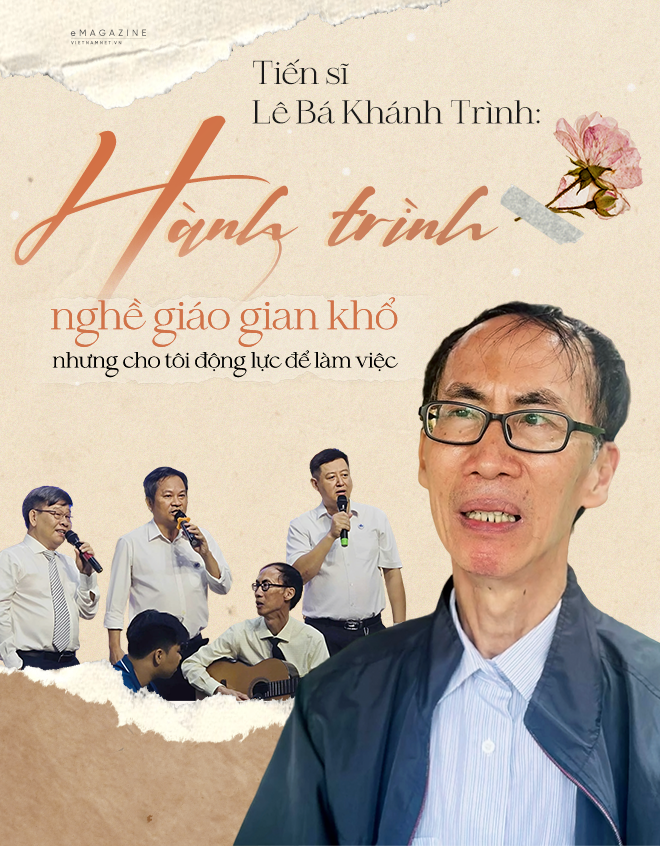

Journalist: Not long ago, the news of your retirement received a lot of attention. How did you receive this?
Dr. Le Ba Khanh Trinh: Actually, according to administrative regulations, I retired a few years ago. But that was just a procedure on paper because during that time I still worked, still collaborated with the Gifted High School and continued to teach the national team in some places.
Recently, when I felt my health decline, the Gifted High School held a ceremony to honor my retirement, and the news was spread more widely. I accepted my retirement with a calm mind, without any regrets, because the core issue is whether I still care about my job and whether I am truly useful.
For me, retirement has no special meaning and if anything changes, it is just that I have a little more free time. Retirement is just an administrative decision - who knows, I might even be more "lively" in the future. But it must be said that my work after retirement does not depend on me but on the surrounding circumstances. If the schools need me, if the job calls, I am still ready.
I still do the same thing I did before: I teach the national team, I do my job professionally and I even demand myself to improve. Now that I have more time, I see that the quality standards need to be raised even higher. Therefore, retirement is just a milestone for me - but my work, thoughts and life will continue. I believe that the trust of the school and the units will always be the same.
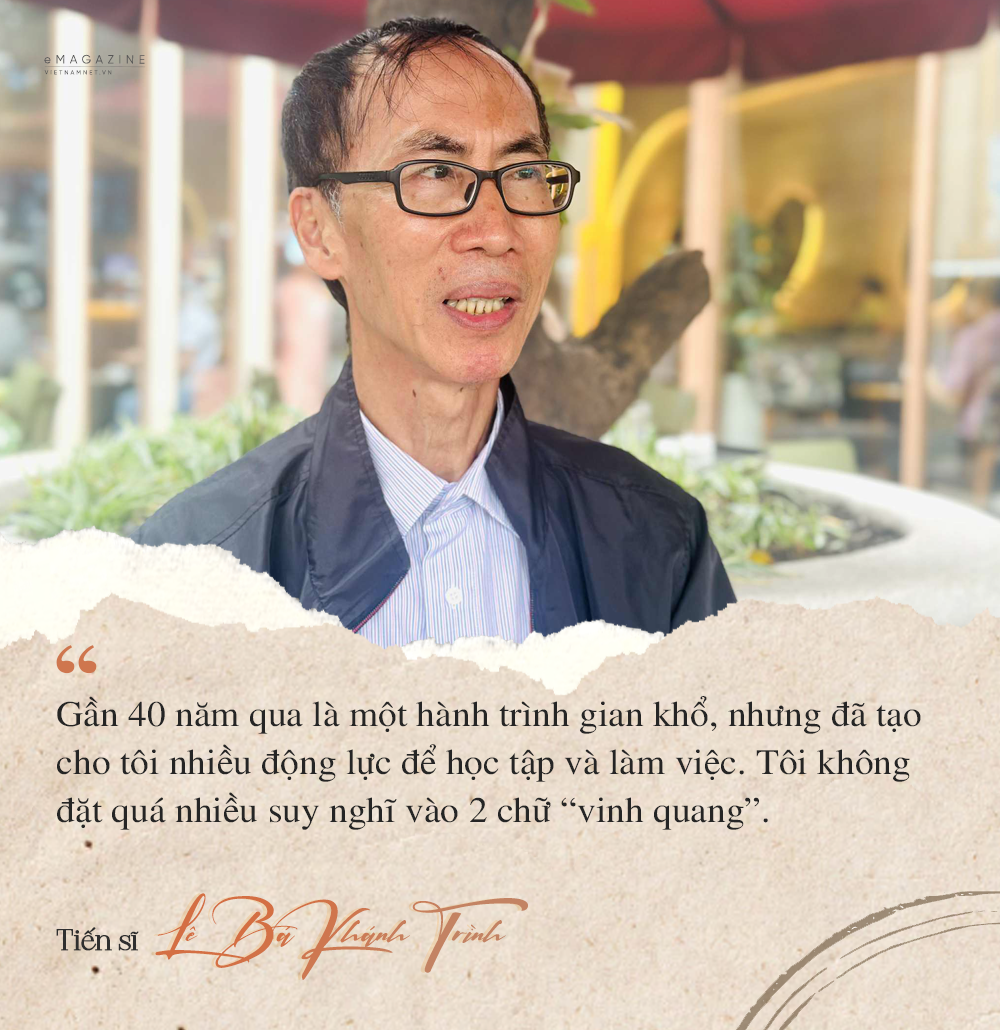
In 1979, at the International Mathematical Olympiad (IMO) in England, he won a Gold Medal with a perfect score of 40/40, and also won a special prize with a unique solution. People gave him the title “Golden Boy of Vietnamese Mathematics”, what do you think about this title?
Honestly, at that time, I didn’t hear anyone call me that. Now, I do – like I was “posthumously awarded”. Maybe people were kind enough to give me that nickname, but it didn’t fit the historical moment. Honestly, I’ve only heard the term “golden boy of mathematics” in recent years when I’m… a bit older (laughs).
With more than 40 years of experience in the teaching profession, teaching and nurturing many generations of excellent students, what do you think when looking back on your journey?
It was a difficult journey, but it was those difficulties that gave me a lot of motivation to study and work. I was fortunate to teach and accompany students who were both obedient and intelligent, well-grounded and well-behaved. They were very polite, thoughtful and especially had sharp thinking. My work was completed well in large part thanks to the system of specialized schools, which selected excellent students so that I had the opportunity to bond with, support and help them develop.
You said that journey was both arduous and glorious. Although you did not care about glory, many generations of students and colleagues admired you. What do you think?
I don’t put too much thought into the word “glory”. But subjectively speaking, I think I have the motivation, the progress and the right working environment. I don’t know whether the students will remember me over time, but right now I feel like I have those things. And honestly, those years were thanks to the students - they were the ones who gave me the motivation to work. I don’t know what that motivation will be like in 10-15 years, but right now, it’s still like a burning flame. I still work seriously, not just for show. I think seriousness in work and fairness in treatment are what make people respected.

Training teams for international competitions, teaching gifted students, teaching at gifted schools… you have the opportunity to meet many young and talented people, who can be considered the elite. What do you think you get from them?
In terms of expertise, I initially thought that I only needed to give good problems without going into detail. But very quickly, I realized that the students were so independent that it surprised me.
For the same problem, many students gave completely different solutions, even opposite to the teacher's, and I was "shocked" in a positive way. Their knowledge made me sharper, forced me to change.
From those suggestions, I began to rewrite the solutions in my own way. The students’ interest in the new solutions gave me more motivation. Many times, the students’ solutions really surprised me. Together, we quietly searched for “God’s solution” - the solution that, according to the books, was the most optimal, profound and most brilliant. That common ideal made teachers and students bond, learn from each other and respect each other, even though it all happened quietly.
The second thing is fairness. I always remind myself that to be sustainable and to progress, there must be fairness. There is no such thing as a student who is better than others being favored. I never let my students think that someone is their “favorite”. All students are treated equally.
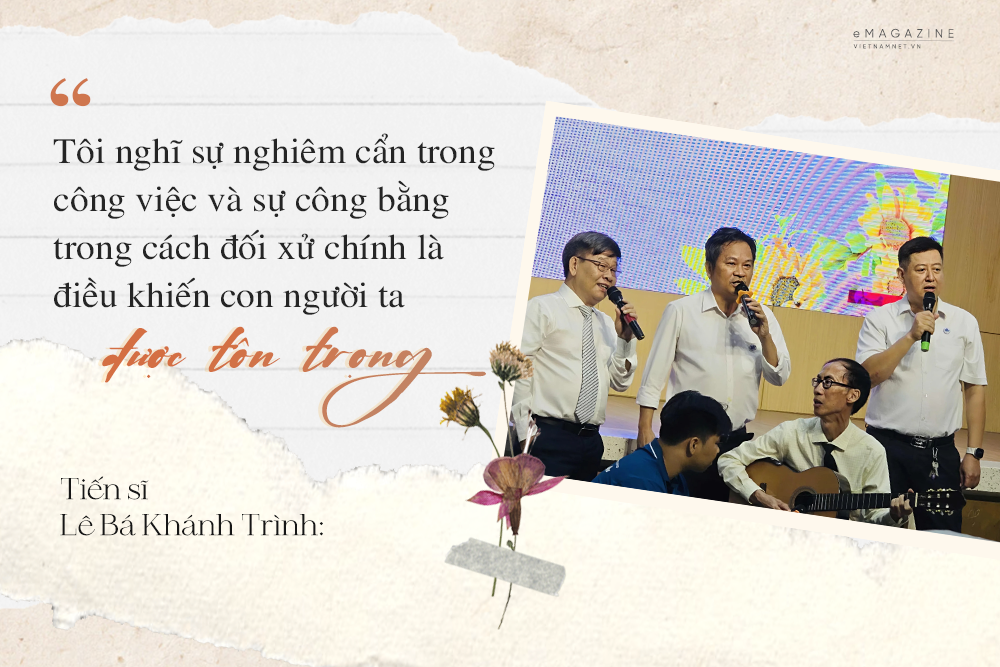
When you meet and teach so many good students, do you feel younger? Looking back, do you think you are suited to teaching?
Vietnamese students are very hard-working. Each student has their own personality, but when studying, they strive together. I see myself in quiet, gentle students like me - but when taking exams, they concentrate and sometimes do surprising things.
Being with the children gives me more energy and makes my thinking younger. There are moments when I feel like a friend of the children and that makes the job very enjoyable.
As for whether teaching is suitable for me - it's hard to say. But as long as I'm still interested, motivated, and able to move forward, and when I see students being self-disciplined, happy, and enthusiastic about learning, I think I'm somewhat suitable (laughs). Anything that lasts long and continues to progress is probably a good thing!
Has mathematician Le Ba Khanh Trinh ever been stuck on a math problem?
Yes! It happens often. I think it is perfectly normal to feel stuck in mathematics, because the world of mathematics is so vast and rich. But every problem is a challenge and I always try to find a way to solve it. It is the moments of being stuck that help me observe more deeply, try new directions and the feeling of happiness when finding a solution is therefore more complete.

After nearly 40 years of teaching, what have you learned for yourself and your colleagues?
If you want to go far, you must have internal motivation. Otherwise, you will easily get bored and bland. Teachers must always seek and improve themselves in the process of teaching and learning with students. Motivation is sometimes very mysterious. For me, the ideal of finding "God's answer" is a great motivation. At this age, students are like children, but later they will be colleagues and some of them are now colleagues, so I have to be more serious and fair in the way I teach and treat them. That is what helps teachers and students go together for a long time.
In the age of digital education with electronic lesson plans, objective multiple-choice learning and testing, teachers are still loyal to blackboards, white chalk and essay format. Why is that?
I am the type that is difficult to change. Changes easily make me “disappointed”. In the past, foreign teachers who made a strong impression on me also taught with chalkboards. The teacher wrote as he explained, very excitedly and unexpectedly. I was influenced by that. Especially in geometry, I need continuity of lines, stopping and emphasizing at the right places when writing, which chalkboards help me express clearly. Technology can be more beautiful, but it is easy to interrupt. My goal when teaching is always to aim for “God’s solution” - something that does not necessarily require technology and there are things that technology cannot replace.
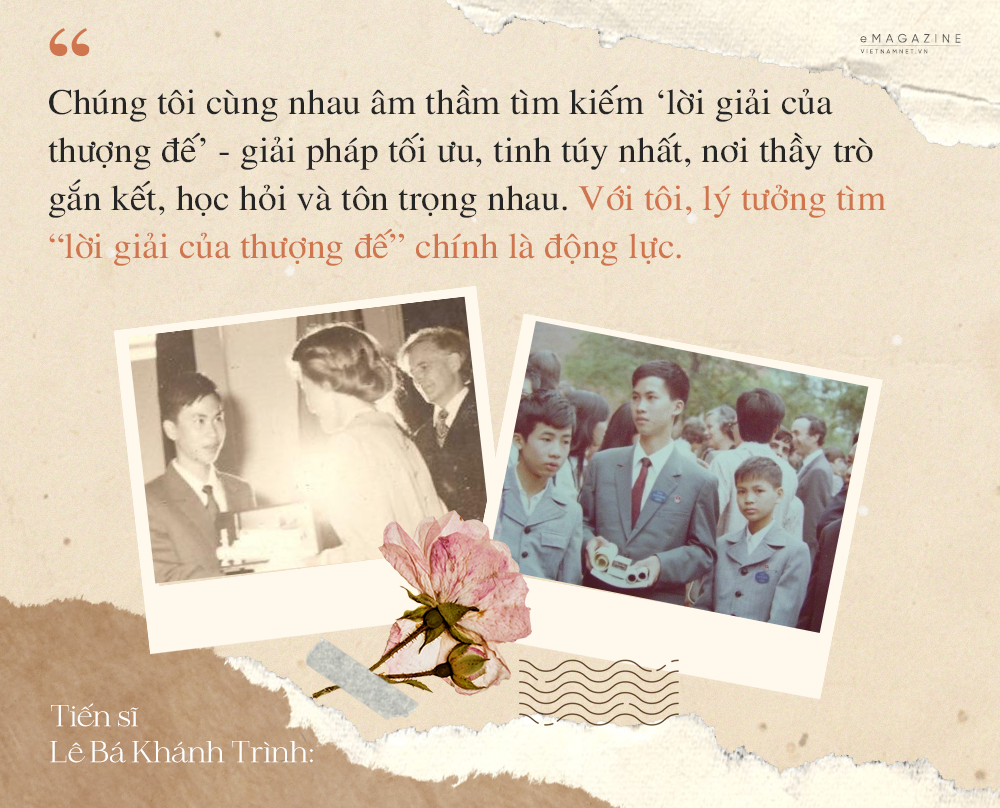
After 50 years of Math graduation exams being in essay format, in 2025 Math will be tested in multiple choice format for the first time. How do you perceive this change?
It is not until 2025 that Math tests will be multiple choice, but that trend has appeared since 2016-2017 and has been stronger for the past few years. Multiple choice tests are marked quickly, right and wrong are clearly stated, but deep down I still prefer essays because they show the clear thinking of the learner.
Specialized schools still use essays for admission because they want to evaluate real abilities. When choosing a multiple-choice test, it must be done in the spirit of multiple-choice: Fast, based on intuition, no long calculations - and the test-taker spends an average of about 10 seconds choosing an answer for each question. With more difficult questions, it can take 20-30 seconds to choose an answer. You cannot take an essay question, extract the answers and turn it into a multiple-choice test; it is just a formal test, which makes me very worried.
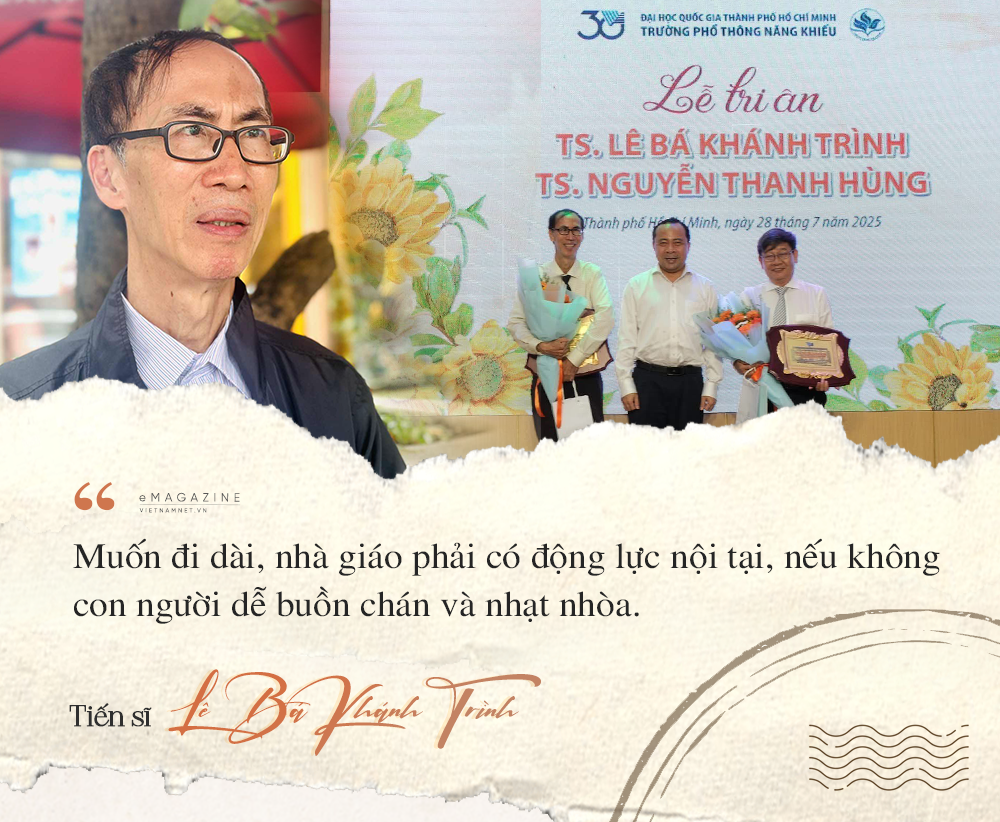
Content and photos: Le Huyen; Design: Pham Luyen
Source: https://vietnamnet.vn/tien-si-le-ba-khanh-trinh-hanh-trinh-nghe-giao-gian-kho-nhung-cho-toi-dong-luc-2463291.html







![[Photo] General Secretary To Lam and National Assembly Chairman Tran Thanh Man attend the 80th Anniversary of the Traditional Day of the Vietnamese Inspection Sector](https://vphoto.vietnam.vn/thumb/1200x675/vietnam/resource/IMAGE/2025/11/17/1763356362984_a2-bnd-7940-3561-jpg.webp)




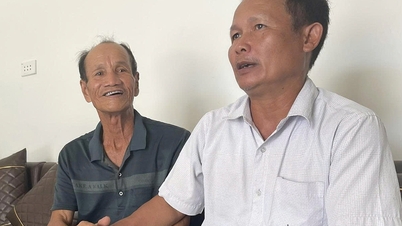


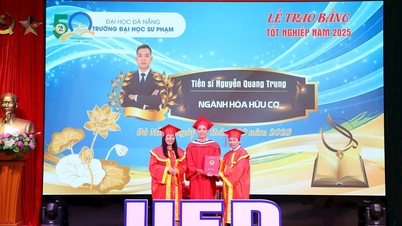

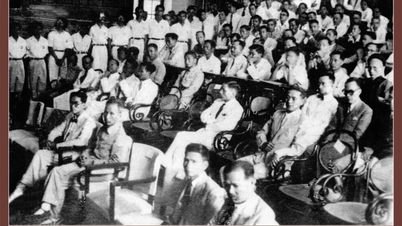

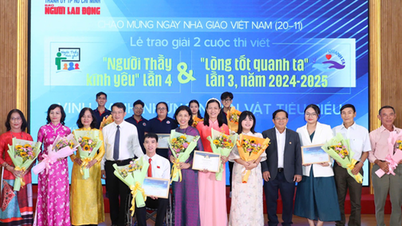





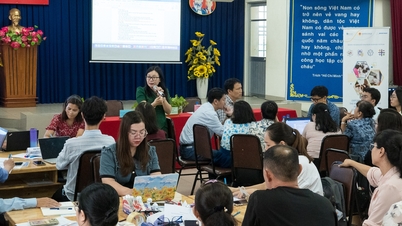






















































































Comment (0)